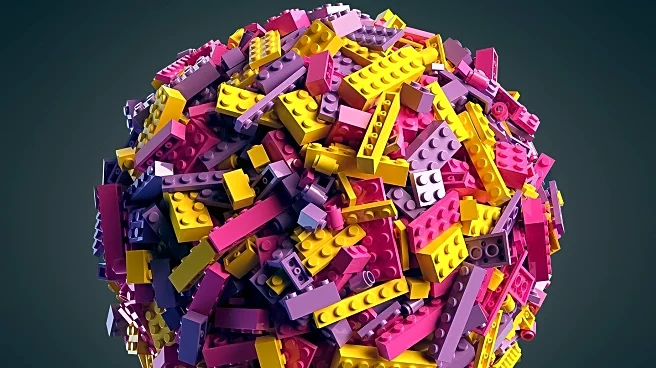What's Happening?
Antimicrobial resistance (AMR) is a growing global health crisis, with nearly five million deaths attributed to it in 2019 alone. The World Health Organization (WHO) estimates that by 2050, AMR could be linked to over eight million deaths annually, costing the world $100 trillion. The development of new antimicrobial drugs and innovative diagnostics is crucial to address this issue. However, the pipeline for new antimicrobials is insufficient, with only 97 novel agents in clinical development as of 2023. Most of these lack true innovation and fail to target the most critical pathogens. The development of rapid and accurate diagnostics is equally important to guide the appropriate use of antimicrobials and prevent misuse, which contributes to resistance. Emerging technologies, such as metagenomic sequencing and lab-on-a-chip platforms, show promise in improving diagnostics.
Why It's Important?
The AMR crisis poses a significant threat to global healthcare systems, economic productivity, and food security. Without effective antimicrobials, common infections could become untreatable, leading to higher mortality rates and increased healthcare costs. The lack of economic incentives and high R&D costs deter innovation in this field. Small biotech companies and academic groups lead 86% of AMR pipeline innovation, but they require more support to scale development. Collaborative efforts and initiatives like PACE are essential to stimulate innovation and ensure the development of effective interventions. Addressing AMR is critical to safeguarding future generations and maintaining global health security.
What's Next?
To combat AMR effectively, a coordinated global effort is required. This includes increasing funding for R&D, developing economic incentives to encourage innovation, and fostering collaboration across sectors. Regulatory frameworks need to be adapted to support the approval of novel therapeutics and diagnostics. Initiatives like PACE, which focus on early-stage translation and skills development, play a crucial role in accelerating promising science into viable interventions. By prioritizing and supporting the right projects, the global community can drive the innovation needed to tackle AMR and protect public health.
Beyond the Headlines
The AMR crisis highlights the need for a paradigm shift in how antimicrobials are developed and used. Ethical considerations, such as equitable access to new treatments and the responsible use of existing drugs, are critical. The development of companion diagnostics tailored to specific infections and contexts can enhance the effectiveness of antimicrobials. Additionally, public awareness and education on the responsible use of antibiotics are vital to prevent misuse and preserve their efficacy. Long-term, sustainable solutions require a holistic approach that addresses scientific, economic, and social dimensions of the AMR challenge.










